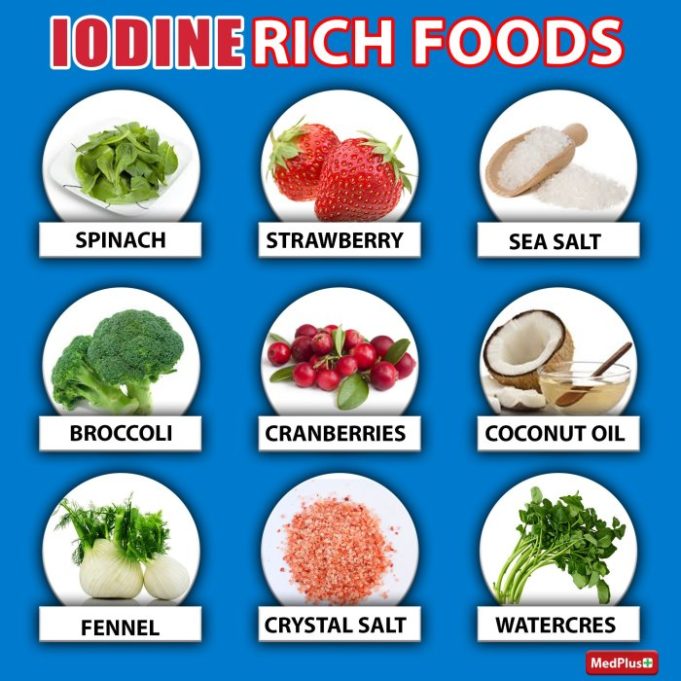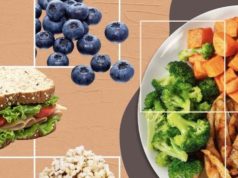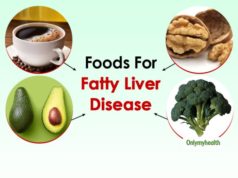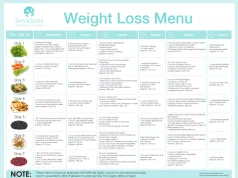How to get more iodine in your diet is a crucial topic for maintaining optimal health. Iodine, a vital mineral, plays a crucial role in various bodily functions, particularly thyroid hormone production. This essential hormone regulates metabolism, growth, and development. However, iodine deficiency is a widespread concern, impacting millions worldwide. This deficiency can lead to a range of health issues, including goiter, hypothyroidism, and cognitive impairments, especially in children. This article delves into the importance of iodine, explores ways to increase your intake through diet and supplements, and sheds light on the connection between iodine and thyroid function.
Iodine is an essential nutrient that our bodies need to function properly. It plays a key role in the production of thyroid hormones, which regulate metabolism, growth, and development. Iodine deficiency is a serious public health concern, affecting millions of people worldwide. It can lead to a range of health problems, including goiter, hypothyroidism, and cognitive impairments, especially in children. This article will discuss the importance of iodine, how to get more iodine in your diet, and the potential health risks of iodine deficiency.
Importance of Iodine
Iodine is an essential mineral that plays a crucial role in various bodily functions, particularly in thyroid hormone production. Thyroid hormones, in turn, are vital for regulating metabolism, growth, and development. Ensuring sufficient iodine intake is critical for maintaining optimal health and preventing iodine deficiency disorders (IDDs).
Iodine’s Role in the Body
Iodine is primarily used by the thyroid gland to produce thyroid hormones, namely thyroxine (T4) and triiodothyronine (T3). These hormones regulate numerous bodily functions, including:
- Metabolism: Thyroid hormones control the rate at which the body burns calories, affecting weight management and energy levels.
- Growth and Development: They are essential for normal brain development in infants and children, impacting cognitive function and overall growth.
- Heart and Blood Pressure: Thyroid hormones regulate heart rate and blood pressure, contributing to cardiovascular health.
- Body Temperature: They influence body temperature regulation, ensuring optimal functioning.
- Reproductive Health: Thyroid hormones play a role in reproductive health, influencing fertility and pregnancy outcomes.
Health Consequences of Iodine Deficiency
Iodine deficiency can lead to a range of health problems, particularly affecting the thyroid gland and its hormone production. These consequences can be severe, especially in infants and pregnant women.
Hypothyroidism
Hypothyroidism occurs when the thyroid gland doesn’t produce enough thyroid hormones. This can result in:
- Slowed Metabolism: Leading to weight gain, fatigue, and decreased energy levels.
- Cognitive Impairment: Affecting concentration, memory, and mood.
- Cardiovascular Issues: Increasing the risk of heart disease and high blood pressure.
- Reproductive Problems: Impacting fertility and increasing the risk of miscarriage.
- Goiter: A visible swelling in the neck due to an enlarged thyroid gland.
Cretinism
Cretinism is a severe form of hypothyroidism that occurs in infants due to iodine deficiency during pregnancy. It can lead to irreversible mental and physical disabilities, including:
- Mental Retardation: Affecting cognitive abilities and learning capacity.
- Growth Retardation: Resulting in stunted growth and short stature.
- Developmental Delays: Affecting motor skills, speech, and other developmental milestones.
Iodine Deficiency Statistics Worldwide
Iodine deficiency is a global public health concern, affecting millions of people worldwide. The World Health Organization (WHO) estimates that:
- Approximately 2 billion people worldwide are iodine deficient.
- Iodine deficiency is the leading preventable cause of intellectual disability.
- IDDs affect about 19 million children annually, leading to significant developmental delays.
“Iodine deficiency is a silent epidemic, affecting millions of people worldwide. It is a preventable condition, and adequate iodine intake is crucial for optimal health and development.” – World Health Organization
Recommended Daily Intake
The recommended daily intake (RDI) of iodine varies based on age and life stage. The RDI is a guideline for the average individual and may need to be adjusted based on individual factors.
Recommended Intake for Different Age Groups
The following table summarizes the recommended daily intake of iodine for different age groups:
| Age Group | Recommended Daily Intake (mcg) |
|---|---|
| Infants (0-6 months) | 110 |
| Infants (7-12 months) | 130 |
| Children (1-3 years) | 90 |
| Children (4-8 years) | 120 |
| Children (9-13 years) | 150 |
| Adolescents (14-18 years) | 150 |
| Adults (19 years and older) | 150 |
| Pregnant women | 220 |
| Lactating women | 290 |
Recommended Intake for Pregnant and Lactating Women
Pregnant and lactating women have a higher iodine requirement than other adults. This is because iodine is essential for the healthy development of the fetus and the baby’s brain and nervous system. The increased demand for iodine during pregnancy and lactation is due to the transfer of iodine to the fetus and breast milk.
“The recommended daily intake of iodine for pregnant women is 220 mcg, and for lactating women is 290 mcg.”
Factors Influencing Individual Iodine Needs
Several factors can influence an individual’s iodine needs. These factors include:
- Age: Infants and children have higher iodine needs than adults due to their rapid growth and development.
- Pregnancy and lactation: As discussed earlier, pregnant and lactating women have higher iodine requirements.
- Thyroid disorders: Individuals with thyroid disorders, such as hypothyroidism, may need higher doses of iodine.
- Geographic location: The iodine content of soil and water varies depending on the location. People living in iodine-deficient areas may need to supplement their iodine intake.
- Dietary habits: A diet low in iodine-rich foods can lead to iodine deficiency. Examples of iodine-rich foods include seafood, dairy products, and iodized salt.
- Certain medications: Some medications, such as lithium, can interfere with iodine absorption and metabolism.
Iodine-Rich Foods
Iodine is an essential mineral that plays a crucial role in thyroid hormone production, which regulates metabolism, growth, and development. Ensuring adequate iodine intake is vital for overall health and well-being.
Foods Rich in Iodine
A balanced diet incorporating iodine-rich foods can help meet your daily iodine requirements. Here is a table highlighting the iodine content in various foods:
| Food | Iodine Content (mcg/100g) | Serving Size | Total Iodine per Serving |
|---|---|---|---|
| Seaweed (Nori) | 2,984 | 1 sheet (approx. 5g) | 149 mcg |
| Cod Liver Oil | 1,400 | 1 tablespoon (15ml) | 210 mcg |
| Tuna (Canned in Oil) | 100 | 100g | 100 mcg |
| Milk (Cow’s Milk) | 50 | 250ml | 12.5 mcg |
| Eggs | 25 | 1 large egg | 25 mcg |
| Yogurt (Plain) | 20 | 1 cup (240ml) | 48 mcg |
| Shrimp | 15 | 100g | 15 mcg |
| Potatoes (Baked) | 10 | 1 medium potato | 10 mcg |
7-Day Meal Plan, How to get more iodine in your diet
Incorporating iodine-rich foods into your daily meals can ensure you meet your recommended daily intake. Here’s a sample 7-day meal plan that incorporates iodine-rich foods:
Day 1
* Breakfast: Oatmeal with milk and a sprinkle of seaweed flakes.
* Lunch: Tuna salad sandwich on whole-wheat bread.
* Dinner: Baked salmon with roasted vegetables.
Day 2
* Breakfast: Scrambled eggs with smoked salmon.
* Lunch: Leftover baked salmon with a side of salad.
* Dinner: Chicken stir-fry with shrimp and brown rice.
Day 3
* Breakfast: Yogurt with berries and a sprinkle of chia seeds.
* Lunch: Turkey lettuce wraps with avocado and a side of seaweed salad.
* Dinner: Lentil soup with whole-wheat bread.
Day 4
* Breakfast: Smoothie with spinach, banana, and milk.
* Lunch: Leftover lentil soup with a side of salad.
* Dinner: Spaghetti with shrimp and marinara sauce.
Day 5
* Breakfast: Whole-wheat toast with avocado and a boiled egg.
* Lunch: Chicken salad sandwich on whole-wheat bread.
* Dinner: Cod fish with roasted vegetables.
Day 6
* Breakfast: Pancakes with a drizzle of maple syrup and a side of fruit.
* Lunch: Leftover cod fish with a side of salad.
* Dinner: Vegetable curry with brown rice.
Day 7
* Breakfast: Oatmeal with milk and a sprinkle of nuts and seeds.
* Lunch: Salad with grilled chicken and a side of quinoa.
* Dinner: Pizza with shrimp and vegetables.
Preparation Methods for Maximizing Iodine Retention
Proper cooking techniques can help preserve iodine content in food. Here are some tips:
* Steaming: Steaming is a gentle cooking method that helps retain iodine in vegetables.
* Boiling: Boiling can lead to some iodine loss, but it is still a good option for cooking vegetables.
* Microwaving: Microwaving can also lead to some iodine loss, but it is a quick and convenient cooking method.
* Avoid Overcooking: Overcooking can significantly reduce iodine content in food.
* Limit Salt: Excess salt can interfere with iodine absorption.
* Use Iodine-Rich Salt: Some salt brands are fortified with iodine.
* Use Fresh Foods: Fresh foods generally contain more iodine than processed foods.
Iodine Supplements
Iodine supplements can be a helpful way to ensure you’re getting enough of this essential mineral, especially if you don’t consume enough iodine-rich foods. They are available in various forms, each with its own pros and cons.
Types of Iodine Supplements
Iodine supplements come in several forms, each with its own advantages and disadvantages.
- Potassium Iodide: This is the most common form of iodine supplement and is generally well-tolerated. It is available in tablet, capsule, and liquid forms.
- Sodium Iodide: This form is also available in tablets and capsules. It is often used in medical settings for specific conditions, such as thyroid disorders.
- Iodine-Rich Seaweed: Seaweed is a natural source of iodine and is available in supplement form. It is often preferred by people who prefer natural supplements.
Pros and Cons of Iodine Supplements
Taking iodine supplements can be beneficial, but it’s important to be aware of the potential drawbacks.
Pros
- Can help prevent iodine deficiency: Iodine supplements can ensure you’re getting enough iodine, especially if you don’t consume enough iodine-rich foods.
- Can improve thyroid function: Adequate iodine intake is crucial for proper thyroid hormone production. Supplements can help regulate thyroid function in individuals with mild iodine deficiency.
- May support cognitive function: Iodine plays a role in brain development and cognitive function. Supplements may help improve cognitive function in individuals with iodine deficiency.
Cons
- Can cause side effects: High doses of iodine can cause side effects such as nausea, vomiting, and diarrhea. It’s crucial to follow the recommended dosage.
- Can interfere with certain medications: Iodine supplements can interact with certain medications, such as lithium. It’s important to talk to your doctor before taking iodine supplements if you are on any medications.
- Can be harmful during pregnancy: Excessive iodine intake during pregnancy can be harmful to the developing fetus. It’s crucial to consult with your doctor before taking iodine supplements during pregnancy.
Appropriate Iodine Supplement Dosage
The recommended daily intake of iodine varies depending on age and gender. The recommended daily intake for adults is 150 mcg. However, it’s important to note that these are just general guidelines. The appropriate dosage for you may vary depending on your individual needs and health conditions.
It’s always best to consult with your doctor or a registered dietitian before taking any supplements, including iodine supplements. They can help you determine the appropriate dosage for your individual needs.
Iodine Deficiency and Goiter
Iodine deficiency is a major public health concern, affecting millions worldwide. One of the most significant consequences of iodine deficiency is goiter, an enlargement of the thyroid gland. This condition occurs when the thyroid gland struggles to produce enough thyroid hormone due to insufficient iodine intake.
Goiter: The Link Between Iodine Deficiency and Thyroid Enlargement
Goiter develops when the thyroid gland tries to compensate for iodine deficiency by expanding its size to absorb more iodine from the bloodstream. This enlargement is often noticeable as a swelling in the neck.
Symptoms of Goiter
Goiter can manifest with various symptoms, depending on its size and the underlying cause.
- Visible Swelling in the Neck: The most common symptom is a noticeable bulge in the neck, which can be small or large.
- Difficulty Swallowing: A large goiter can press on the esophagus, making it difficult to swallow.
- Difficulty Breathing: A goiter can also compress the trachea, leading to shortness of breath, especially when lying down.
- Hoarseness: Goiter can affect the vocal cords, causing hoarseness.
- Coughing: A goiter can irritate the trachea, causing a persistent cough.
Diagnosis and Treatment of Goiter
Diagnosing goiter involves a physical examination, a review of medical history, and laboratory tests.
- Physical Examination: A doctor will examine the neck to assess the size and location of the goiter.
- Medical History: The doctor will ask about symptoms, family history of thyroid disorders, and dietary habits.
- Laboratory Tests: Blood tests will be conducted to measure thyroid hormone levels (TSH, T3, T4) and to assess thyroid function.
- Imaging Studies: In some cases, imaging studies like ultrasound or thyroid scans may be used to evaluate the goiter and identify any underlying conditions.
Treatment for goiter depends on the cause and severity of the condition.
- Iodine Supplementation: For goiters caused by iodine deficiency, iodine supplementation is the primary treatment. This can be achieved through oral iodine tablets or iodized salt.
- Thyroid Hormone Replacement Therapy: If the goiter is caused by hypothyroidism, thyroid hormone replacement therapy is necessary.
- Surgery: In some cases, surgery may be recommended to remove the goiter, particularly if it is very large, causing significant symptoms, or if there is suspicion of cancer.
- Radioactive Iodine Therapy: Radioactive iodine therapy can be used to shrink the goiter in certain cases.
Iodine in Pregnancy
Iodine is an essential nutrient that plays a vital role in various bodily functions, particularly during pregnancy. It is crucial for the healthy development of the fetus, especially the brain and nervous system. During pregnancy, the body’s iodine requirements increase significantly to meet the needs of both the mother and the growing baby.
Importance of Adequate Iodine Intake During Pregnancy
Iodine is a crucial component of thyroid hormones, which regulate metabolism, growth, and development. Adequate iodine intake during pregnancy is essential for:
- Fetal brain development: Iodine is vital for the production of thyroid hormones, which are essential for the development of the fetal brain and nervous system. Iodine deficiency during pregnancy can lead to impaired cognitive function, learning disabilities, and other developmental problems in the child.
- Normal fetal growth: Iodine is necessary for the proper growth and development of the fetus. Iodine deficiency can lead to low birth weight, preterm birth, and other complications.
- Maternal thyroid function: Iodine is essential for maintaining normal thyroid function in the mother. Iodine deficiency can lead to hypothyroidism, which can have adverse effects on both the mother and the fetus.
Risks of Iodine Deficiency During Pregnancy
Iodine deficiency during pregnancy can have serious consequences for both the mother and the fetus. These consequences include:
- Congenital hypothyroidism: This condition occurs when the baby is born with an underactive thyroid gland. It can lead to developmental delays, intellectual disabilities, and other health problems.
- Spontaneous abortion: Iodine deficiency has been linked to an increased risk of miscarriage.
- Premature birth: Iodine deficiency can increase the risk of delivering a baby prematurely.
- Stillbirth: In severe cases, iodine deficiency can lead to stillbirth.
- Neurological problems: Iodine deficiency can lead to neurological problems in the child, such as cerebral palsy and hearing loss.
Recommendations for Iodine Intake During Pregnancy
The recommended daily intake of iodine during pregnancy is 200 micrograms (mcg). This can be achieved through a balanced diet rich in iodine-rich foods.
- Seaweed: Seaweed, such as nori, kelp, and wakame, is an excellent source of iodine. Just a small amount of seaweed can provide a significant amount of iodine.
- Fish: Fish, such as cod, tuna, and salmon, are good sources of iodine. However, pregnant women should limit their intake of certain types of fish, such as swordfish, shark, and king mackerel, due to their high mercury content.
- Dairy products: Milk, yogurt, and cheese are good sources of iodine. Choose low-fat or fat-free options to reduce your intake of saturated fat.
- Eggs: Eggs are a good source of iodine, as well as other essential nutrients for pregnancy.
Iodine and Thyroid Function
Iodine is an essential mineral that plays a crucial role in the production of thyroid hormones. Thyroid hormones, namely thyroxine (T4) and triiodothyronine (T3), are responsible for regulating various bodily functions, including metabolism, growth, and development.
The Role of Iodine in Thyroid Hormone Production
The thyroid gland, located in the neck, uses iodine to synthesize thyroid hormones. Iodine is incorporated into tyrosine, an amino acid, to form the thyroid hormones T4 and T3. This process involves a series of enzymatic reactions that occur within the thyroid gland.
Iodine Deficiency and its Impact on Thyroid Function
Iodine deficiency can significantly disrupt thyroid hormone production. Without sufficient iodine, the thyroid gland cannot produce enough T4 and T3. This can lead to a range of health problems, collectively known as iodine deficiency disorders (IDDs).
Thyroid Disorders Related to Iodine Deficiency
Iodine deficiency can cause various thyroid disorders, including:
- Hypothyroidism: This condition occurs when the thyroid gland does not produce enough thyroid hormones. Symptoms of hypothyroidism include fatigue, weight gain, cold intolerance, and depression. In severe cases, hypothyroidism can lead to developmental delays in children and cognitive impairment in adults.
- Goiter: A goiter is an enlargement of the thyroid gland. It occurs as the thyroid gland tries to compensate for iodine deficiency by working harder to produce thyroid hormones. While goiters are usually painless, they can cause cosmetic concerns and, in some cases, difficulty breathing or swallowing.
- Cretinism: This is a severe form of hypothyroidism that occurs in infants and children. Cretinism can lead to developmental delays, mental retardation, and physical abnormalities.
Iodine and Cognitive Development: How To Get More Iodine In Your Diet
Iodine is an essential nutrient that plays a crucial role in cognitive development, particularly in children. It’s vital for the proper functioning of the thyroid gland, which produces hormones that regulate brain development and function.
Iodine Deficiency and Cognitive Impairment
Iodine deficiency can have significant and long-lasting consequences on cognitive development, especially during critical periods of brain growth. Research indicates that iodine deficiency can lead to various cognitive impairments, including:
- Lower IQ scores
- Delayed mental development
- Learning disabilities
- Reduced attention span
- Behavioral problems
Iodine is crucial for the synthesis of thyroid hormones, which are essential for brain development and function. These hormones play a vital role in myelination, the process of forming a protective sheath around nerve fibers that enhances nerve signal transmission. Iodine deficiency can disrupt myelination, leading to impaired brain function and cognitive deficits.
Closing Summary
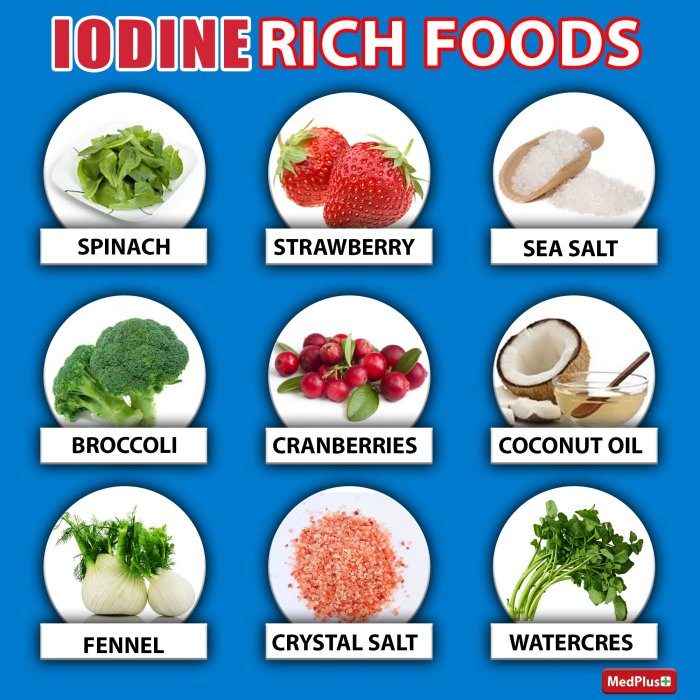
In conclusion, ensuring adequate iodine intake is paramount for overall health and well-being. By incorporating iodine-rich foods into your diet, consulting with a healthcare professional about appropriate supplementation, and being mindful of iodine levels during pregnancy, you can effectively address iodine deficiency and support optimal thyroid function. Remember, a balanced diet and informed choices are key to maintaining a healthy and fulfilling life.
Popular Questions
What are the best sources of iodine in food?
Seaweed, fish, dairy products, and iodized salt are excellent sources of iodine.
Is it safe to take iodine supplements?
It’s best to consult with a doctor before taking iodine supplements, as excessive intake can be harmful.
Can iodine deficiency affect my child’s development?
Yes, iodine deficiency during pregnancy and early childhood can lead to cognitive impairments and developmental delays.
What are the symptoms of iodine deficiency?
Symptoms can include fatigue, weight gain, depression, dry skin, and goiter.
How can I get my iodine levels checked?
You can ask your doctor to order a blood test to check your iodine levels.
Adding more iodine to your diet can be as simple as incorporating seafood into your meals. If you’re trying to cut back on sugar, it’s important to understand the difference between diet and zero sugar soda and how they can impact your health.
While diet soda might seem like a good alternative, it’s best to prioritize natural sources of iodine like seaweed and dairy products for a healthy and balanced diet.
Getting enough iodine in your diet is important for thyroid health, and incorporating seafood, dairy products, and iodized salt can help. While maintaining a healthy thyroid is crucial, it’s also essential to address other health concerns like high blood pressure.
A balanced diet rich in fruits, vegetables, and whole grains is a key factor in managing blood pressure, and you can find more information on the best diet to lower blood pressure here. By combining a balanced diet with adequate iodine intake, you can support both your thyroid function and overall well-being.
Getting enough iodine in your diet is important for thyroid health, and incorporating seaweed into your meals is a great way to boost your intake. Similar to iodine, ensuring you get enough iron is also crucial for overall health.
You can find helpful tips on how to increase your iron intake by checking out this guide: how to get more iron in my diet. And don’t forget to include other iodine-rich foods like dairy products and fish in your diet as well.















